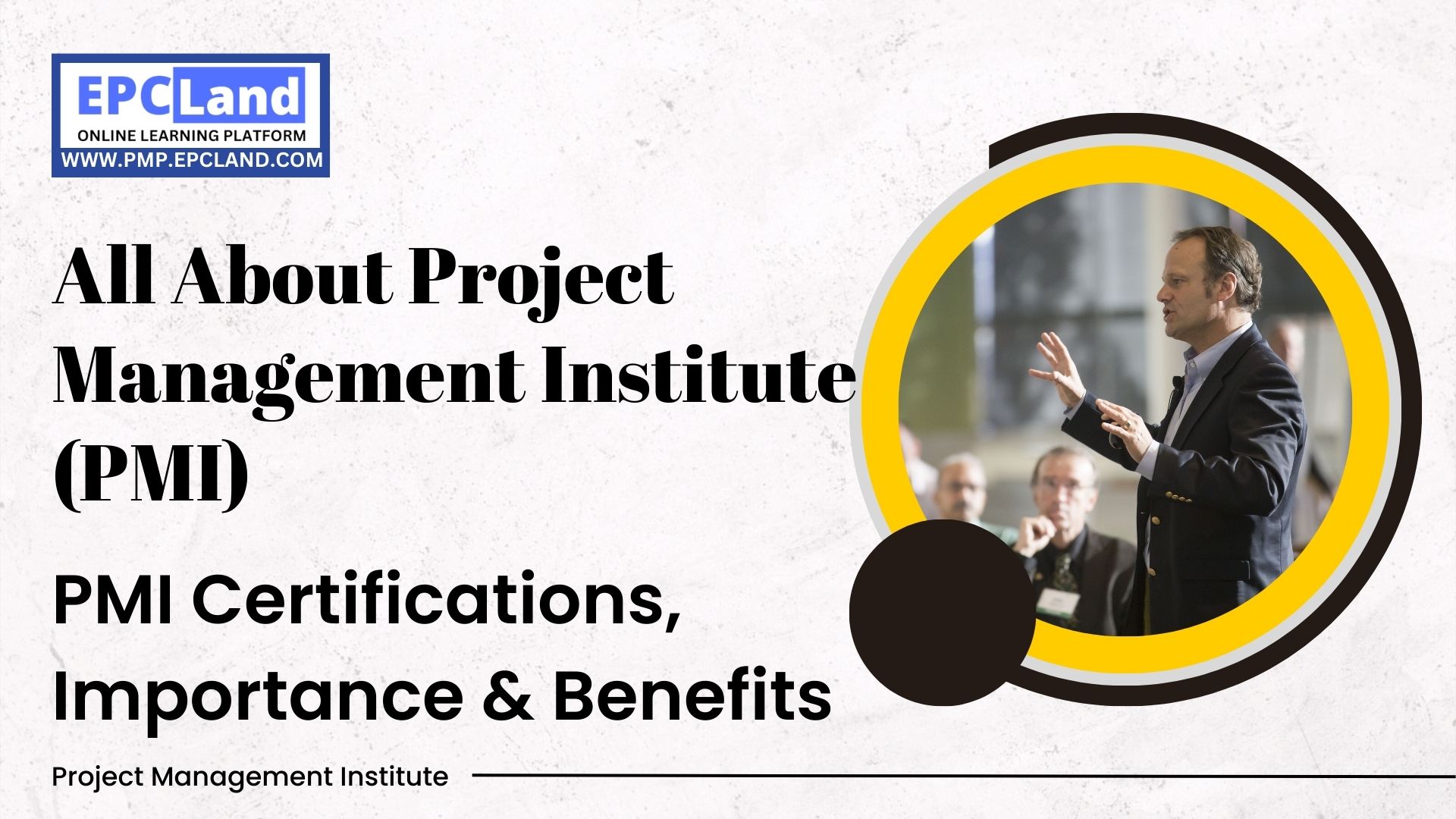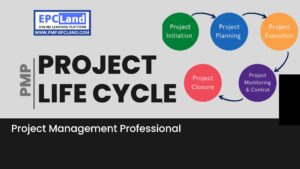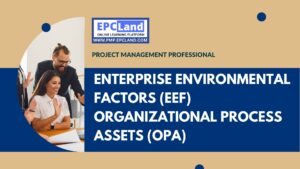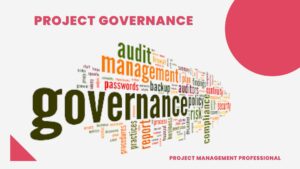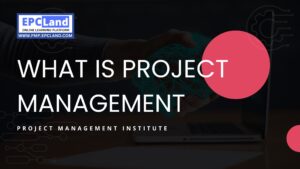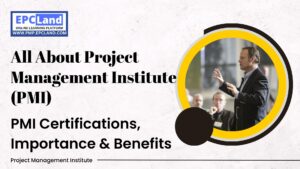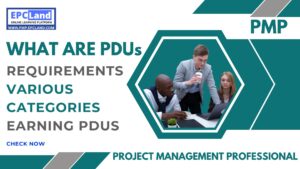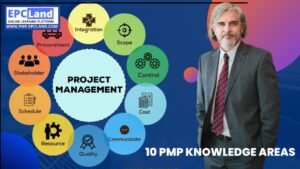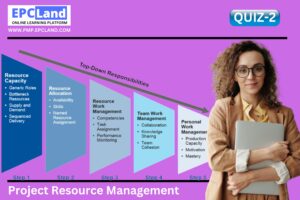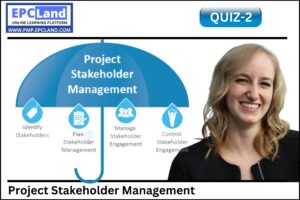Table of Contents
ToggleInteresting facts about Project Management Institute (PMI)
- PMI has a global presence with members in more than 170 countries.
- It is the world’s largest association for project management.
- PMI is committed to setting professional standards for project managers, so they stand out from the crowd.
- A PMI certification greatly improves your employability.
Project Management Institute (PMI) Certifications
The Project Management Institute (PMI) offers five certifications on project management. Not sure which one is right for you? Well then, I’m here to help you find the answer.
Types of PMI Certifications
- Certified Associate in Project Management (CAPM)®
- PMI Scheduling Professional (PMI-SP)®
- PMI Risk Management Professional (PMI-RMP)®
- Project Management Professional (PMP)®
- Program Management Professional (PgMP)®
Why PMI Certifications
PMI certification provides the most coveted recognition and visibility within your organization. A certificate is an important investment in your career as it can increase your job stability, expand your earning potential and make you more competitive in the job market.
To qualify for PMI certification, you must meet specific educational and project management experience requirements. These vary by qualification and are detailed in the qualification guide.
Don’t Miss the 1000+ MCQ questions & hundreds of quizzes on PMP Knowledge Areas and Various important sections.
How to access various PMI Certifications
Links to each of the five manuals can be found on the PMI website at www.pmi.org under Career Development > About PMI’s Credentials & then Go ahead.
You will soon find out that there are questions without answers. The question is, “Where do you want to be today in five years?” So, instead of reading the certificate right away, I suggest you find out where your passion for project management lies, choose the right career path, and then consider the right career path & certificate.
Why PMI Certification is Important
About 1.2 million new project manager positions will need to be filled each year through 2016, according to Anderson Economic Group. However, applicants without a PMP certificate are often not considered. According to Kevin Archbold, his consulting manager at Key Consulting, “Many recruiters divide their resumes into two piles.
“There are enough good project managers with PMP certification today that recruiters don’t have to filter out project managers without certification.”2
This article explores why his PMP certification is so desirable in today’s work and business environment.
The customer requests that the provider have her PMP certification. Whether you believe in the intrinsic value of PMP certification or not, as a commercial reality many large companies and organizations simply need it. If your company has submitted bids for federal, state, or local government projects in the past few years, you may have encountered PMP certification requirements.
However, this requirement is by no means limited to government agencies. In his 2010 article for CIO.com, Steve DelGrosso, director of IBM’s Project Management Center of Excellence, summarized customer demand for PMP certificate holders:
Example-1
US market requires PMP certification or other project management certification. Five or six years ago, IBM saw a request for a proposal where a customer required a certified project manager as part of the bid. If the contract does not have a certified project manager, it will not be considered.
DelGrosso also says that in 2010, out of his 25,000 project managers at IBM, he had 14,000 certified and counting. “The best project manager at IBM is a certified project manager,” he added.
Example-2:
Certain types of companies require adherence to a strictly defined process throughout their business approach, making the PMP credential mandatory. PMP certification proves that you speak a common language.
Benefits of PMI Certification
PMP Certification Holders Speak Common Language
PMP Certification Shows You Speak a Common Language As a project manager, you probably spend most of your time communicating. Also, team members often vary from project to project. So the ability to speak a common business language helps ensure you’re on the same page with team members, sponsors, program managers, and more. For example, someone with a PMP certification knows the difference between a procurement audit and a procurement performance assessment and when to conduct each. Or the difference between qualitative and quantitative risk analysis, total float versus free float, etc.
Understanding a recognized project management framework provides an opportunity to speak and communicate with customers and suppliers on an equal footing.
Learning the jargon may seem to be more about form than substance for some, but think about how easily a project can go awry because of errors. A team PMP holders does not eliminate the possibility of misunderstanding, but it greatly reduces the possibility of misunderstanding because there is a common understanding of what each process and technique is trying to achieve.
Don’t Miss the 1000+ MCQ questions & hundreds of quizzes on PMP Knowledge Areas and Various important sections.
Earning a PMP certification shows that you are motivated and goal-oriented.
A PMP certification shows that you have ambitions. Employers want to hire employees who are willing to go beyond their normal duties. We also want to hire employees who are passionate about promoting professional development. Getting a PMP certification might be the best way to get that message across to prospective employers (and possibly current employers).
Learn to Expect the un-expected
As project managers, we’ve learned to expect the unexpected. Every project is full of unknowns and the ability to navigate an ever-changing environment is paramount. But while every project is different, there is undeniable value in using a set of standardized, repeatable processes that have been validated by project management professionals around the world. The need for standardized project management methods and processes is underscored by increased collaboration between organizations in today’s economy.
Common set of Processes with Collaborating organisations
In its 2013 Pulse of the Profession™ study, PMI addressed the growing need to standardize processes to accommodate this trend. It’s position was supported by the 2012 IBM CEO Survey which found that 53% of their managers’ leaders innovate with partner organizations. Of course, when two organizations are collaborating on one of their projects, a common set of processes and techniques are essential.
Take risk management for example. This is clearly not an area of reinventing approaches (or trying to combine multiple approaches) on a project-by-project basis. Of course the risks are different in each case and the answers are different, but the way they are identified and analyzed shouldn’t be.
Team members speak same language
PMI supports processes, tools, and documentation to help you manage risk effectively and securely on any project. Plus, you can be sure that team members and partner organizations are always on the same page when it comes to identifying and identifying risks.
Earning the PMP certification shows that you are an intelligent person.
Proven Judgment & decision-making ability
Finally, one’s employer knows that PMP exam will be difficult. A very good multiple-choice test for testing your judgment and decision-making ability. It also tests your reading comprehension and attention to detail. Both are important qualities for a successful professional. So just passing the exam can set you apart from others who don’t have the certification.
What does it take to earn PMP certification
Earning a PMP certification requires significant time, energy, and focus on top of your regular work and family commitments. You need to manage your time well and be able to handle the extra stress in your life.
Many people would say that the PMP exam was the most difficult exam they have ever taken. Accreditation matters little if it’s not a challenge. If you’re willing to take on this challenge, especially when you’re working full-time, you deserve recognition for going above and beyond your usual commitments.
What does one get once certified by PMI
It can bring great value to any organization. PMP certification demonstrates your ability to manage projects in a structured and repeatable manner.
According to Mark Langley, President and CEO of the Project Management Institute (PMI)®, in 2010 he had an overall pass rate of between 60% and 75% for his PMP exam. Although the details of the exam content are closely guarded, general feedback on the exam has become very difficult in recent years, especially after the publication of the Project Management Body of Knowledge Guide (PMBOK® Guide) – 5th Edition. Even with the best preparation courses, you have to put in a lot of effort to master the information before taking the exam.
PMP certification is an important part of our portfolio. In summary, PMP certification is extremely valuable to both employees and employers. We all know that there are many qualities that go into being a great project manager, and you can’t acquire or improve some of these qualities just by earning a PMP certification. For example, good judgment, attention to detail, and communication/motivational skills are difficult to teach and are not particularly emphasized on the PMP exam.
But while all these qualities are very important, they are only basic. They need to grow and PMP certification is a great way to do that. Speaking a common language and following a structured set of processes creates an environment in which innovation and collaboration occur more efficiently and with far less risk, delivering real business value to these core competencies. increase.
Summary
Ultimately, PMP credentials are of great value. The reality of this business trumps any argument for the need for PMP certification. Many major companies in today’s economy demand this from their suppliers and business partners, so no organization or employee can afford to buck the trend if they want to remain competitive.
